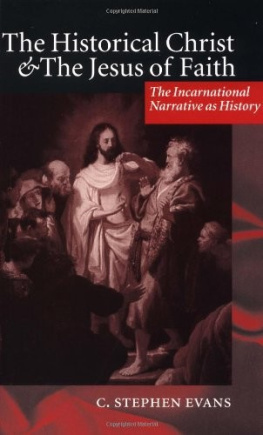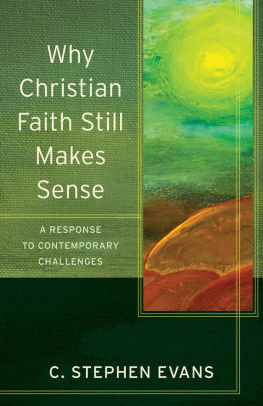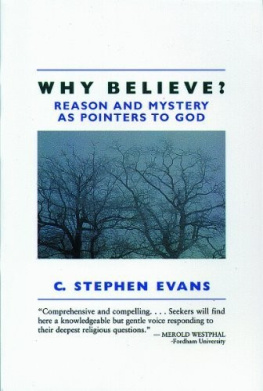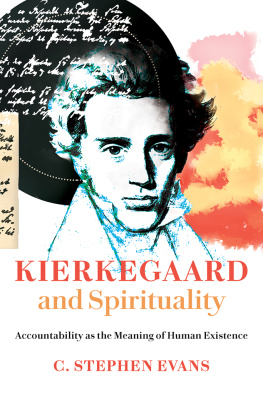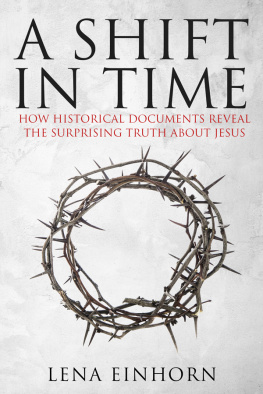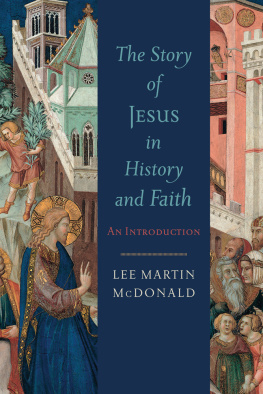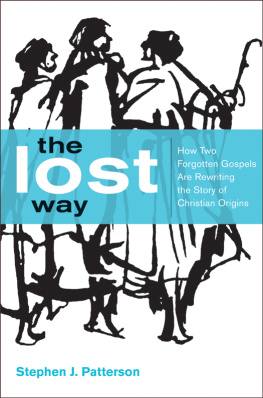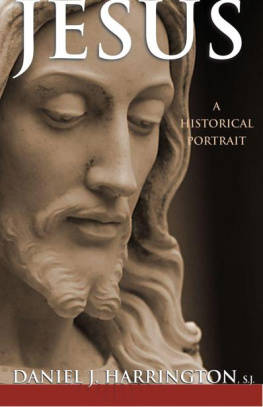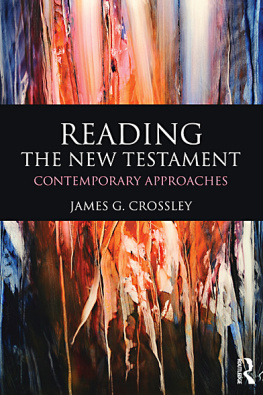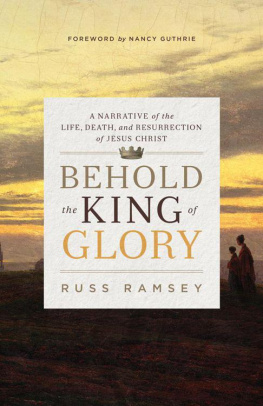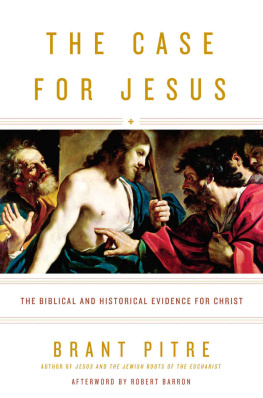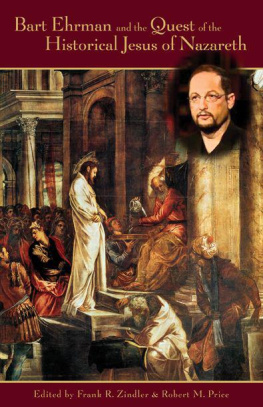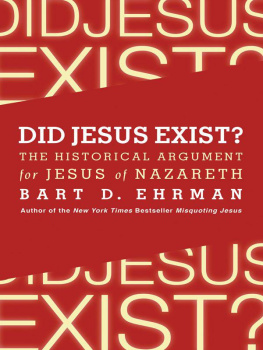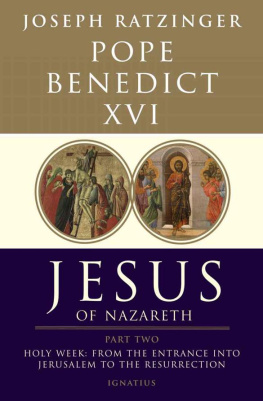
The Historical Christ and
the Jesus of Faith
The Historical Christ and
the Jesus of Faith
The Incarnational Narrative as History

C. STEPHEN EVANS

This book has been printed digitally and produced in a standard specification in order to ensure its continuing availability

Great Clarendon Street, Oxford OX2 6DP
Oxford University Press is a department of the University of Oxford.
It furthers the Universitys objective of excellence in research, scholarship,
and education by publishing worldwide in
Oxford New York
Auckland Bangkok Buenos Aires Cape Town Chennai
Dar es Salaam Delhi Hong Kong Istanbul Karachi Kolkata
Kuala Lumpur Madrid Melbourne Mexico City Mumbai Nairobi
So Paulo Shanghai Taipei Tokyo Toronto
Oxford is a registered trade mark of Oxford University Press
in the UK and in certain other countries
Published in the United States
by Oxford University Press Inc., New York
Stephen Evans 1996
The moral rights of the author have been asserted
Database right Oxford University Press (maker)
Reprinted 2004
All rights reserved. No part of this publication may be reproduced,
stored in a retrieval system, or transmitted, in any form or by any means,
without the prior permission in writing of Oxford University Press,
or as expressly permitted by law, or under terms agreed with the appropriate
reprographics rights organization. Enquiries concerning reproduction
outside the scope of the above should be sent to the Rights Department,
Oxford University Press, at the address above
You must not circulate this book in any other binding or cover
And you must impose this same condition on any acquirer
eISBN 978-0-19-826397-5
Preface

I T is difficult to imagine a story that has had more impact on human history than the story of Jesus of Nazareth. A huge part of the power of the story has always rested on an understanding that the narrative is not merely an imaginative story; it is a story of what really happened. The historicity of the story has, however, been subjected to intense critical scrutiny for the last two hundred years. The outcome of that scrutiny has not always penetrated popular consciousness, at least if theologian Van Harvey is to be believed: Anyone teaching the origins of Christianity to college undergraduates or divinity students cannot help but be struck by the enormous gap between what the average layperson believes to be historically true about Jesus of Nazareth and what the great majority of New Testament scholars have concluded.
Fortunately or unfortunately, the situation Harvey describes is surely changing. The wide publicity given to and sought by the work of the Jesus Seminar, for example, has gone far to make the layperson aware of what many New Testament scholars think about these questions, though to what extent people are changing their beliefs is anybodys guess.were made at meetings twice a year in which members voted by dropping colour-coded beads in a box.
The theatrics behind the Jesus Seminar may obscure the real problem that Harvey points to: Can a person of intellectual integrity continue to take the story of Jesus that the Christian Church has traditionally recounted to be historical in its main outlines? That problem must be considered in relation to others: Does the historicity of the story even matter? Why does it matter? These are the questions I have tried to address in The Historical Christ and the Jesus of Faith .
The title is of course a twist on the distinction some theologians have attempted to draw between the historical Jesus and the Christ of faith. The distinction is appealing because it represents an attempt to isolate what is religiously significant about Jesus from the difficulties that arise from entanglement with history. However, much of what is religiously significant about Jesus lies precisely in the historicity of his story, and much is lost when the story is emptied of that historicity, as many critics of Bultmannian theology have pointed out. My own title reflects my thesis that the story of Jesus as told by the Churchthe story of Jesus as the Christ, the Son of Godcan be reasonably accepted as historically true. Throughout the book I shall describe the Churchs version of this story as the incarnational narrative, a phrase that is described in more detail in the first chapter.
It is often said that such a view of Jesus cannot be justified by history, but is only arrived at by faith. This claim is a half-truth. It is certainly correct that a conviction that the Churchs story is true must be rooted in faith. However, the claim that the Churchs story must be accepted by faith, as usually understood, is misleading for two reasons. For it is often thought that it means that believers hold their convictions by faith and not reason, while serious historical scholars base their views solely on reason. However, to say that the Churchs story must be accepted by faith does not mean that such faith cannot be reasonable, or that it can or should be isolated from critical scrutiny. And the suggestion that it is only the Churchs version of the story that it requires faith to accept is mistaken. The truth is that there is no story of the historical Jesus that can be isolated from faith convictions, and this is as true for the stories told by scientific, critical historians as it is for the story told by the Church. The story of Jesus is always a story of a Jesus of faith.
It would probably be helpful to say something about the point of view from which this book has been written. First of all, it is not really a work of apologetics. That is, though I discuss the prospects for arguments designed to convince unbelievers of the historicity of the story, this is not itself such an argument. Rather, the book aims to give a convincing account as to why knowledge of the story is important, and also argues that ordinary people who claim to have knowledge of the truth of the story of Jesus of Nazareth may be quite reasonable in making such a claim. Specifically, I claim that the reasonableness of such a claim is not undermined by modern critical biblical scholarship. It should be obvious that an argument such as mine is quite different from the kind of argument that would need to be offered to try to change the minds of those who do not accept the biblical story.
To whom is the book addressed? I do, of course, hope the story I tell will be convincing to Christians. However, the book is by no means addressed solely to a Christian audience. My hope is that a non-Christian who understands my account will gain a new respect for the integrity and intellectual vitality of Christian faith in the contemporary world. My aim is not to convert such a person, but to help that person understand and appreciate the logic of the standpoint of faith. Perhaps such a person will consider the story afresh and even take seriously the apologetic arguments that could be offered on behalf of the story.
My professional training is as a philosopher, and it is of course with fear and trembling that I offer the world a book such as this, one that freely crosses the disciplinary boundaries of biblical studies, theology, history, philosophy, and literary criticism, to name just a few. The name of the game in modern academe is specialize, specialize, and a book such as this may appear to be an act of hubris if not madness. However, a careful look at the history of philosophy reveals that a concern for clarification and even defence of theological claims has been important to many philosophers.
Next page
